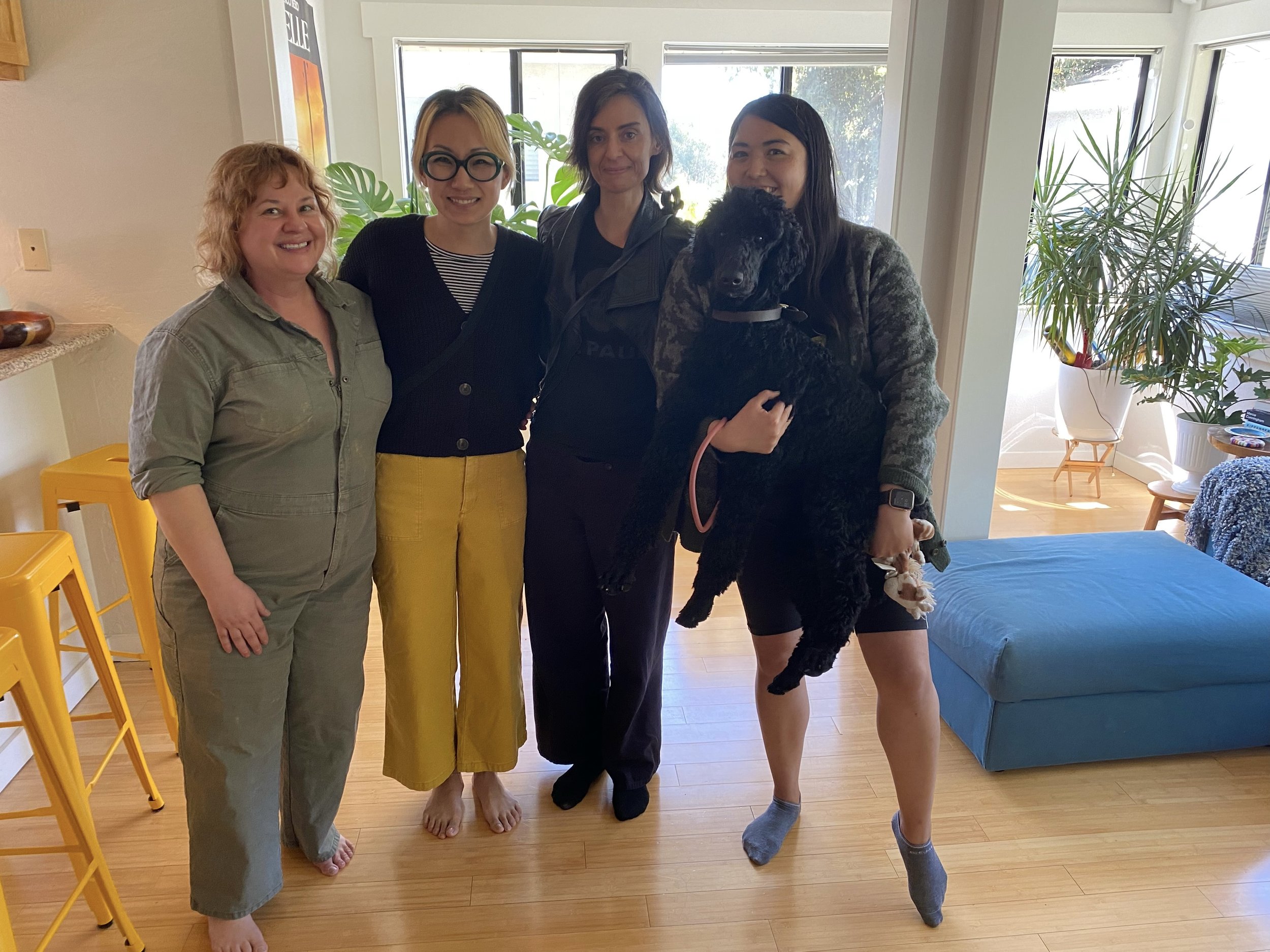Just released
Reimagining Reproduction
South Asia Edition
Hardcover available here
(paperback out in June 2024)
Cover art: “Meditations on Mending,” Bhasha Chakrabarti, 2019
About
Dr. Kalindi Vora is Professor of Gender, Sexuality and Women’s Studies and Ethnicity, Race, and Migration,Yale University
I am an anthropologist of science and technology who works at the intersections of medicine, technology and inequality. I focus on how people reimagine possibilities for science and technology to achieve social change, and what stops those visions from being realized.
My current book project is Sensitive Subjects, supported by a National Science Foundation Science and Technology Studies award (2022-2024). It amplifies what people with chronic illness know about health, care, and medicine that physicians may not.
With Ryan Cartwright (UC Davis), and support by the Mellon Foundation’s Higher Education Program, I am running Enduring Conditions: A Disability, Illness and Care Collaboratory at Yale University (more info here).
Recent Research
Technoprecarious
This collaboratively authored multigraph analyzes the role of digital technology in multiplying precarity. The authors use the term precarity to characterize those populations disproportionately affected by the forms of inequality and insecurity that digital technologies have generated despite the new affordances and possibilities they offer.
Surrogate Humanity: Race, Robots, and the Politics of Technological Futures
In Surrogate Humanity Neda Atanasoski and Kalindi Vora trace the ways in which robots, artificial intelligence, and other technologies serve as surrogates for human workers within a labor system entrenched in racial capitalism and patriarchy.
Recent Writing
-
This ten week graduate level course guides participants in 1) conceptualizing their research problem through feminist commitments to social justice, 2) completing a research design incorporating feminist methods and approaches and 3) building support for potential challenges in future research practice following the course.
Each week, the curriculum offers tools and models, including case studies, of research applications in STEM for feminist approaches. Feminist approaches are defined as improving objective outcomes and community benefits through incorporating multiple perspectives into each stage of the research design process. These perspectives will be specific to each project, but include stakeholders in the research outcomes. Students will learn to design research projects that achieve results that will both make significant contributions to their research field while also being committed to social justice outcomes.
This graduate seminar is taught as part of the Asking Different Questions: Interdisciplinary Approaches to Science initiative led by the UC Davis Feminist Research Institute which is funded by National Science Foundation Innovations in Graduate Education grant (#1807056). More educational resources the Asking Different Questions Research Training Series are available online here.
-
This ten week graduate level course asks, what are the implicit assumptions and politics of imagination that govern the design of our material, social, and political world? What alternative imaginaries, politics, and speculative visions can be developed with a feminist analytical lens? To understand speculation as a political practice, this course brings together critical texts from materialist theory, feminist science studies, queer kinship and affect studies (including queer of color critique), women of color feminisms, and transnational ethnic studies, to consider how we can hold dominant social imaginaries responsible to the multiple and often conflicting visions of communities who remains rooted in histories of injustice as they imagine or design future infrastructure. We will look at critique as political imagination and fabulation as theory of politics and practice. Materials for study include critical theory, ethnographies of technology, technical writing and scientific papers, as well as speculative art practices including design, visual art and fiction.
Recent Courses
Dr. Vora teaches courses in Ethnic Studies, Science and Technology Studies, and Gender, Sexuality, and Women’s Studies, on topics ranging from feminist theory and methods, critical theory, ethnic studies, and feminist approaches to STEM research and practice.
Recent Media
Surrogate Futures: Technology, Race, and the Human
In this talk, Kalindi Vora and Neda Atanasoski consider how the surrogate effect of technology within technoliberalism, as they describe it in their book, Surrogate Humanity: Race, Robots and the Politics of Technological Futures (2019), comes to bear on recent discussions around technological bias. Assessing how technological design is central to envisioning and shaping different potential futures, they emphasize the importance of thinking beyond bias if we are to understand how racial capitalism undergirds technological design. They also explore radical design politics that disrupt more mainstream uses and visions of technological value.
Lab
The Vora Lab brings together a group of interdisciplinary feminist scholars working across the fields of ethnic studies, science and technology studies, cultural studies, education, and performance studies.











